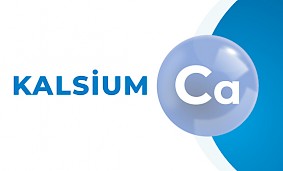What foods contain Vitamin B9? Before answering this question, it would be more appropriate to first provide information about Vitamin B9.
Vitamin B9, also known as folic acid, is a water-soluble vitamin that is essential for the human body. Folic acid is especially important for cell division, DNA synthesis, the production of red blood cells, and the proper functioning of the nervous system. It is crucial to get enough of this vitamin during periods of rapid growth such as pregnancy, childhood, and adolescence. It supports fetal development and helps form the brain and nervous system.
Now, let's move on to our main question: What foods contain Vitamin B9?
Folic acid can be found both in natural foods and in dietary supplements. Natural sources of Vitamin B9 include:
Legumes (beans, peas, lentils)
Leafy green vegetables (spinach, kale, broccoli)
Eggs, beef liver
Wheat germ, tropical fruits (papaya, banana, avocado)
Nuts and citrus fruits
Folic Acid
Folic acid is a form of Vitamin B9 essential for the healthy growth and development of the body. It supports the production of blood cells, assists in nervous system function, and participates in DNA synthesis. During pregnancy, folic acid protects the fetal nervous system, prevents birth defects, and accelerates cell division in the body. A deficiency in folic acid can lead to anemia, weakened immunity, muscle weakness, and memory problems.
How to Use Folic Acid
The recommended folic acid intake varies depending on age, health status, and individual needs. For a healthy adult, the daily recommended amount is 400 mcg.
For pregnant women, this amount is 600 mcg
For breastfeeding mothers, 500 mcg is recommended.
Since folic acid is a vitamin the body cannot produce on its own, it should be taken regularly through food or as supplements under medical advice. Pregnant women, individuals with anemia, and those involved in intense physical activity should ensure adequate intake.
Benefits of Folic Acid
The benefits of folic acid are broad and support many vital functions in the body:
Helps form red blood cells and prevents anemia
Protects the fetal brain and nervous system during pregnancy, preventing birth defects
Strengthens the immune system and enhances resistance to infections
Regulates DNA synthesis and cell division, aiding tissue regeneration
Enhances cognitive function and memory, and reduces the risk of Alzheimer’s and other neurological diseases
Supports cardiovascular health by improving blood circulation and protecting blood vessels
Maintains healthy skin, keeping it radiant and youthful
Improves hair and nail health, prevents hair loss, and strengthens nails
Best Folic Acid Sources
The best source of folic acid depends on individual needs. Natural foods are the ideal source. If dietary intake is insufficient, high-quality supplements should be used upon a doctor’s recommendation. Since the methylfolate form is better absorbed by the body, choosing bioactive forms is advisable. Especially for pregnant women or those with folate deficiency, doctor-approved supplements can help maintain healthy folic acid levels. However, folate-rich natural foods should also be included in the daily diet.
Symptoms of Folic Acid Deficiency
Folic acid deficiency can lead to a range of health issues and negatively impact overall bodily functions. Main symptoms include:
Anemia and low blood count – due to a decrease in red blood cells
Weakness, fatigue, and exhaustion – caused by low energy levels
Weakened immune system – leading to frequent illness
Fetal development issues during pregnancy – increasing the risk of birth defects
Memory loss and concentration problems – impairing brain function
Pale and dry skin – due to slowed skin cell renewal
Mouth sores and gum issues – affecting oral health
Depression and mood swings – due to nervous system dysfunction
To prevent these symptoms, folate-rich foods should be added to the diet, and vitamin supplements should be taken upon medical advice. You can trust the professional medical team of Sağlam Ailə!

